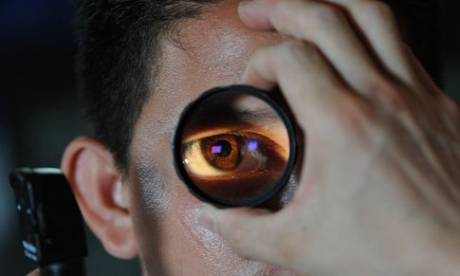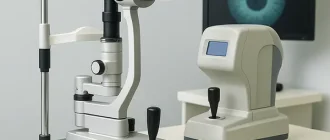When considering LASIK eye surgery, choosing the right doctor is as critical as the procedure itself. Your vision is invaluable, and ensuring that it’s in the hands of a highly skilled and trustworthy professional is non-negotiable. But how can you confidently select the best LASIK doctor?
Patient Satisfaction Rates by Procedure Type
| Procedure Type | Satisfaction Rate (%) |
|---|---|
| SMILE | 96% |
| LASIK | 93% |
| PRK | 91% |
| LASEK | 85% |
What Qualifications Should You Look For?
The first step in your search is verifying that the doctor is certified and experienced in LASIK procedures. Here are some key qualifications to check:
- Board Certification: Look for a doctor certified by the American Board of Ophthalmology or similar recognized organizations. This certification ensures that the surgeon has met rigorous standards and stays updated on the latest ophthalmological advancements.
- Specialized Training: Ensure the doctor has completed specialized training in refractive surgeries like LASIK. Additional certifications in advanced LASIK techniques, such as bladeless LASIK or Wavefront technology, further highlight their expertise.
- Experience Level: Ideally, the surgeon should have performed at least 1,000 LASIK procedures successfully. Surgeons with a decade or more of experience often demonstrate a higher level of skill, having encountered and addressed various complexities over time.
A surgeon with these qualifications is more likely to provide safe and effective results.
Why Is Technology Important?
Did you know that LASIK procedures now utilize highly advanced technology tailored to individual needs? Modern LASIK employs tools like Wavefront-guided mapping and femtosecond lasers, which offer superior precision. The best LASIK doctors keep up with these advancements. When consulting a surgeon, ask:
- What technology do you use for LASIK procedures?
- How does your equipment ensure better outcomes?
A clinic with outdated technology could compromise your results.
Technology Adoption by LASIK Clinics
| Technology | Adoption Rate (%) |
|---|---|
| Wavefront-Guided LASIK | 85% |
| Femtosecond Laser Technology | 78% |
| Topography-Guided LASIK | 65% |
| SMILE Technology | 50% |
How to Research the Doctor’s Reputation
Reputation often speaks louder than credentials. Here’s how you can evaluate a LASIK doctor’s reputation:
- Online Reviews: Platforms like Google, Yelp, and Healthgrades provide firsthand accounts of patient experiences. Reading a variety of reviews can give you a comprehensive picture of patient satisfaction, from pre-surgical consultations to post-operative care. Make note of recurring themes—positive or negative—to identify patterns.
- Referrals: Ask friends, family, or your primary eye care provider for recommendations. Personal referrals often come with detailed accounts of their experiences, which can provide valuable insights into a surgeon’s bedside manner and professionalism.
- Patient Outcomes: Inquire about the surgeon’s success rate and any complications they’ve handled. A surgeon with a transparent approach to discussing outcomes—both successes and challenges—is more likely to prioritize your safety and satisfaction. Knowing their experience in addressing rare complications can also provide peace of mind.
If the surgeon has numerous positive reviews and testimonials, it’s a strong indicator of their expertise.
LASIK Surgeon Experience Levels
| Experience Level | Percentage of Surgeons (%) |
|---|---|
| 1-5 Years | 30% |
| 6-10 Years | 40% |
| 11-15 Years | 20% |
| 16+ Years | 10% |
Should You Consult Multiple Surgeons?
Absolutely! Scheduling consultations with at least two or three LASIK doctors allows you to compare their:
- Approach to patient care
- Transparency about risks and benefits
- Comfort level in answering your questions
During these consultations, don’t hesitate to ask about their experience with cases similar to yours. For example, if you have astigmatism, ask how they’ve successfully treated patients with the same condition.
“Did You Know?” Fact Block
Did you know that over 90% of LASIK patients achieve 20/20 vision or better? According to the American Refractive Surgery Council, patient satisfaction rates for LASIK consistently exceed 95%. However, these statistics are most applicable when you choose a qualified and experienced surgeon.
The Role of Cost in Your Decision
While LASIK is a significant investment, it’s crucial not to prioritize cost over quality. Many clinics offer “too-good-to-be-true” prices that may reflect:
- Limited experience
- Inferior technology
- Hidden fees for post-operative care
A typical LASIK procedure in the U.S. costs between \$2,000 and \$3,000 per eye. Ensure that the quoted price includes follow-up care and enhancements if needed.
What Questions Should You Ask?
Before committing to a LASIK doctor, ask:
- How many LASIK procedures have you performed?
- What is your success rate?
- What percentage of your patients experience complications?
- What type of LASIK is best for my eyes?
- How will you handle post-operative care and potential enhancements?
These questions demonstrate that you are an informed patient and help you gauge the surgeon’s expertise.
Table: LASIK Surgeon Comparison Checklist
| Criteria | Surgeon A | Surgeon B | Surgeon C |
|---|---|---|---|
| Board Certified | Yes/No | Yes/No | Yes/No |
| Years of Experience | X years | X years | X years |
| Technology Used | Type 1 | Type 2 | Type 3 |
| Patient Satisfaction | X% | X% | X% |
| Cost Per Eye (\$) | \$X | \$X | \$X |
Editorial Advice
Finding the best LASIK eye surgery doctor may feel overwhelming, but it’s worth every bit of effort. Remember, your vision is a lifelong asset. Take the time to research, ask the right questions, and consult multiple experts. By prioritizing experience, technology, and reputation over cost, you’ll set yourself up for a safe and successful LASIK experience.
Reasons Patients Choose LASIK
| Reason | Percentage of Patients (%) |
|---|---|
| Desire for Glasses-Free Vision | 70% |
| Convenience for Sports and Activities | 60% |
| Professional or Career Requirements | 50% |
| Cost of Contact Lenses Over Time | 40% |
| Medical Reasons | 30% |






